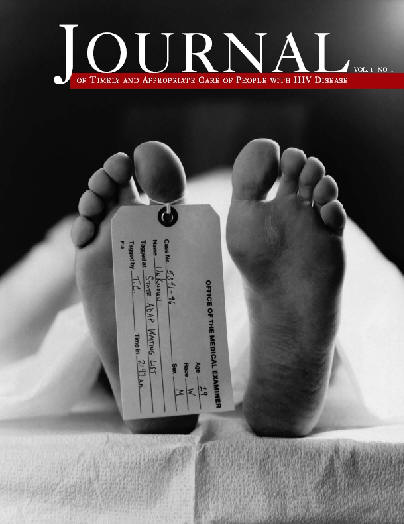As the reauthorization of the Ryan White CARE Act (RWCA) is
debated in this time of severe
budget constraints, there is an increasing cry from Americans with HIV/AIDS
who are just trying
to cling to what little hope they have for life. Growing numbers of
Americans have no access to
the most basic HIV medications, and some are dying before they ever obtain
access. Morally and
ethically, this is injustice. Many of us who live in poor rural states never
have had access to many
of the medications and services provided to those living with HIV/AIDS in
states with Title I cities
or a richer tax base. If it is impossible to right the injustice of
disproportionate HIV care funding in
America now, we at least need a high-priority commitment from our national
advocates and elected
officials to ensure that, regardless of geography, each American with
HIV/AIDS has access to the
basic HIV medications.
I have lived with HIV in Arkansas for 14 years and when
health allows Iíve been an activist fighting
the epidemic here at home. Iím disabled; my monthly income is a little over
$700 a month. I do not
qualify for Arkansasís Medicaid, so I rely on the Arkansas AIDS Drug
Assistance Program (ADAP)
for my medications. Arkansas has the highest percentage of people living in
poverty in America. Of
Arkansasís African-American population, a community absorbing over half of
our stateís new HIV
infections,41% live in poverty. More than 1 in 3 non-elderly Arkansans are
uninsured at some point
during the year, with two thirds of those for more than 6 months. In
Arkansas, you have to be more
than just poor and disabled to qualify for Medicaid. With great demand and
an impoverished tax
base, our Medicaid programís income eligibility criteria are among the
strictest in the nation, with a
very low assets limit. This creates a burden on Arkansasís ADAP that most
states do not experience.
Declining revenues due to recent national economic woes deeply impacted
Arkansas. In 2003, state
government not only trimmed Medicaid but also did not appropriate state ADAP
funding for the next 2
years. This at a time when Arkansasís ADAP had experienced the nationís
second highest growth rate,
and federal increases were inadequate at best. In order to slow growth on
our stateís ADAP, the strictest
medical criteria in the country was established. Our enrollment is now
capped. We are on the verge of
joining several other states that have implemented ADAP waiting lists. Hope
is being denied to a rising
number in HIV-positive Arkansans and other Americans. To compound the
problem, HIV-positive persons
with high viral loads are considered to be more infectious. No medication
and no hope may well equal
higher infection rates.
Arkansas may never have a RWCA Title I city or the extra
resources provided for those areas of the
country. While 81% of Americaís population lives in metropolitan areas, the
majority of Arkansans
live in rural, non-metropolitan areas. As for RWCA Title II services, we
have ďcase managementĒ and
a few dollars for other services. Our case managers serve clients in broad
geographic areas mostly by
telephone. They have as many as 140 clients each and, due to their caseload,
are mostly crisis
managers.
We can live with the service dollars we now have; we cannot
live without HIV medications. There are
too few doctors qualified to treat HIV in rural areas, and it can be quite a
journey for many without a
car or access to public transportation. Hospital care in Arkansas is ranked
among the worst in the
nation in all categories, according to the 2003 HealthGrades Hospital
Quality in America Study. Even
if you live near a rural hospital that is willing to admit you with
your HIV status, the quality of care here
is questionable at best.
Medication that keeps us out of these hospitals is critical.
I am very proud that Arkansas produced a p
resident who helped direct considerable federal resources for HIV research,
prevention, care, and
housing. I am deeply disturbed that Americaís commitment to Americans living
with HIV/AIDS is
crumbling at a time when our countryís attention is primarily focused on the
need for HIV medications
abroad. As one voice from the Americaís wilderness, I plead with each of you
in your various capacities
to make access to basic HIV medications possible for all Americans with
HIV/AIDS, no matter where
they live.
